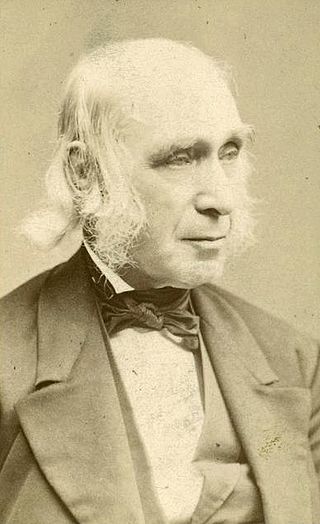
Amos Bronson Alcott was an American teacher, writer, philosopher, and reformer. As an educator, Alcott pioneered new ways of interacting with young students, focusing on a conversational style, and avoided traditional punishment. He hoped to perfect the human spirit and, to that end, advocated a plant-based diet. He was also an abolitionist and an advocate for women's rights.

Ralph Waldo Emerson, who went by his middle name Waldo, was an American essayist, lecturer, philosopher, abolitionist, and poet who led the transcendentalist movement of the mid-19th century. He was seen as a champion of individualism and a prescient critic of the countervailing pressures of society. Friedrich Nietzsche considered him “the most gifted of the Americans” and Walt Whitman referred to him as his “master”.
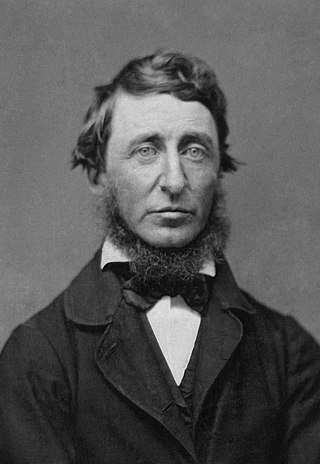
Henry David Thoreau was an American naturalist, essayist, poet, and philosopher. A leading transcendentalist, he is best known for his book Walden, a reflection upon simple living in natural surroundings, and his essay "Civil Disobedience", an argument for disobedience to an unjust state.
Transcendentalism is a philosophical movement that developed in the late 1820s and 1830s in the New England region of the United States. A core belief is in the inherent goodness of people and nature, and while society and its institutions have corrupted the purity of the individual, people are at their best when truly "self-reliant" and independent. Transcendentalists saw divine experience inherent in the everyday, rather than believing in a distant heaven. Transcendentalists saw physical and spiritual phenomena as part of dynamic processes rather than discrete entities.

Walden is a book by American transcendentalist writer Henry David Thoreau. The text is a reflection upon the author's simple living in natural surroundings. The work is part personal declaration of independence, social experiment, voyage of spiritual discovery, satire, and—to some degree—a manual for self-reliance.
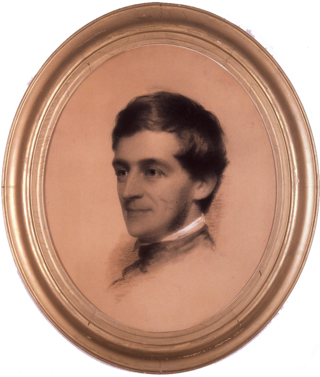
"Self-Reliance" is an 1841 essay written by American transcendentalist philosopher Ralph Waldo Emerson. It contains the most thorough statement of one of Emerson's recurrent themes: the need for each individual to avoid conformity and false consistency, and follow his own instincts and ideas. It is the source of one of Emerson's most famous quotations:
The Transcendental Club was a group of New England authors, philosophers, socialists, politicians and intellectuals of the early-to-mid-19th century which gave rise to Transcendentalism.
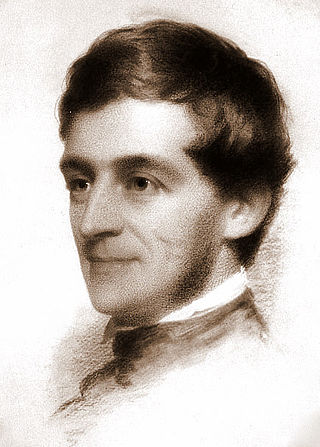
Nature is a book-length essay written by Ralph Waldo Emerson, published by James Munroe and Company in 1836. In the essay Emerson put forth the foundation of transcendentalism, a belief system that espouses a non-traditional appreciation of nature. Transcendentalism suggests that the divine, or God, suffuses nature, and suggests that reality can be understood by studying nature. Emerson's visit to the Muséum National d'Histoire Naturelle in Paris inspired a set of lectures he later delivered in Boston which were then published.

"The American Scholar" was a speech given by Ralph Waldo Emerson on August 31, 1837, to the Phi Beta Kappa Society of Harvard College at the First Parish in Cambridge in Cambridge, Massachusetts. He was invited to speak in recognition of his groundbreaking work Nature, published a year earlier, in which he established a new way for America's fledgling society to regard the world. Sixty years after declaring independence, American culture was still heavily influenced by Europe, and Emerson, for possibly the first time in the country's history, provided a visionary philosophical framework for escaping "from under its iron lids" and building a new, distinctly American cultural identity.

Frederic Henry Hedge was a New England Unitarian minister and Transcendentalist. He was a founder of the Transcendental Club, originally called Hedge's Club, and active in the development of Transcendentalism. He was one of the foremost scholars of German literature in the United States.

The Old Manse is a historic manse in Concord, Massachusetts, United States, notable for its literary associations. It is open to the public as a nonprofit museum owned and operated by the Trustees of Reservations. The house is located on Monument Street, with the Concord River just behind it. The property neighbors the North Bridge, a part of Minute Man National Historical Park.

The Night Thoreau Spent in Jail is a two-act American play by Robert E. Lee and Jerome Lawrence written in 1969. The play is based on the early life of the title character, Henry David Thoreau, leading up to his night spent in a jail in Concord, Massachusetts. Thoreau was jailed for refusing to pay a poll tax on the grounds that the money might be used to pay for the Mexican–American War, which he opposed.
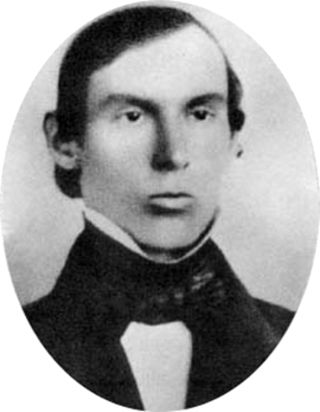
Jones Very was an American poet, essayist, clergyman, and mystic associated with the American Transcendentalism movement. He was known as a scholar of William Shakespeare, and many of his poems were Shakespearean sonnets. He was well-known and respected among the Transcendentalists.

The Ralph Waldo Emerson House is a house museum located at 18 Cambridge Turnpike, Concord, Massachusetts, and a National Historic Landmark for its associations with American philosopher Ralph Waldo Emerson. He and his family named the home Bush. The museum is open mid-April to mid-October; an admission fee is charged.
"Brahma" is a poem by Ralph Waldo Emerson, written in 1856. However, the poem was published in the November 1857 issue of The Atlantic. It is named for Brahman, the universal principle of the Vedas.

The transparent eyeball is a philosophical metaphor originated by American transcendentalist philosopher Ralph Waldo Emerson. In his essay Nature, the metaphor stands for a view of life that is absorbent rather than reflective, and therefore takes in all that nature has to offer without bias or contradiction. Emerson intends that the individual become one with nature, and the manner of the transparent eyeball is an approach to achieving it.

Excursions is an 1863 anthology of several essays by American transcendentalist Henry David Thoreau. The anthology contains an introduction entitled "Biographical Sketch" in which fellow transcendentalist Ralph Waldo Emerson provides a description of Thoreau.
A Yankee in Canada, with Anti-Slavery and Reform Papers is an anthology of works by Henry David Thoreau, edited by his sister Sophia Thoreau and his friends William Ellery Channing and Ralph Waldo Emerson. It was published in 1866, after Thoreau’s death, by Ticknor and Fields, the Boston firm that had published Walden.

Caroline Sturgis Tappan, commonly known as Caroline Sturgis, or "Cary" Sturgis, was an American Transcendentalist poet and artist. She is particularly known for her friendships and frequent correspondences with prominent American Transcendentalists, such as Margaret Fuller and Ralph Waldo Emerson. Sturgis published 25 poems in four different volumes of The Dial, a Transcendental periodical. She also wrote and illustrated two books for children, Rainbows for Children (1847) and The Magician’s Show Box, and Other Stories (1856).
The Concord Female Anti-Slavery Society was a female abolitionist organisation in Concord, Massachusetts, in the mid 19th century. This society was a significant influence on Henry David Thoreau, Ralph Waldo Emerson, and Louisa May Alcott.












